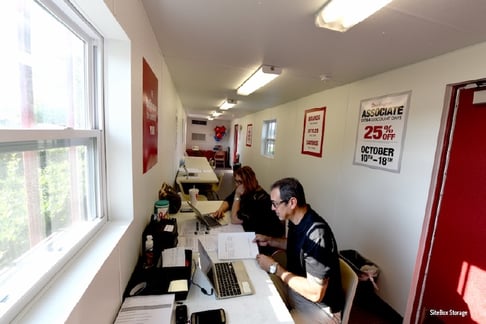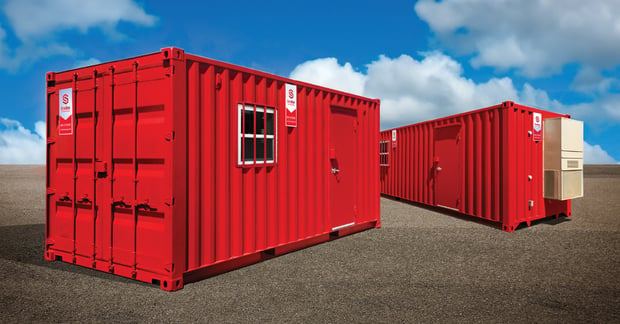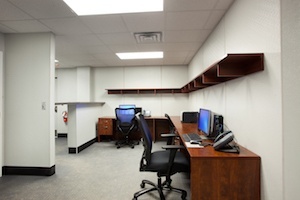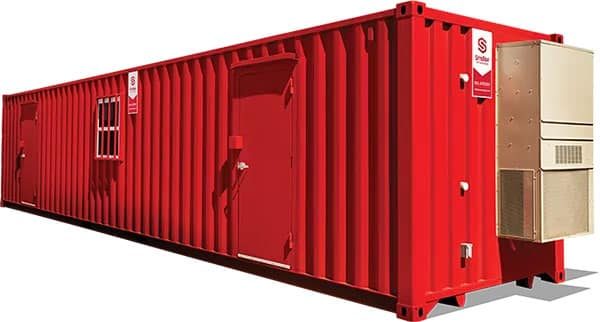Mobile Office Modifications that Improve Your Productivity
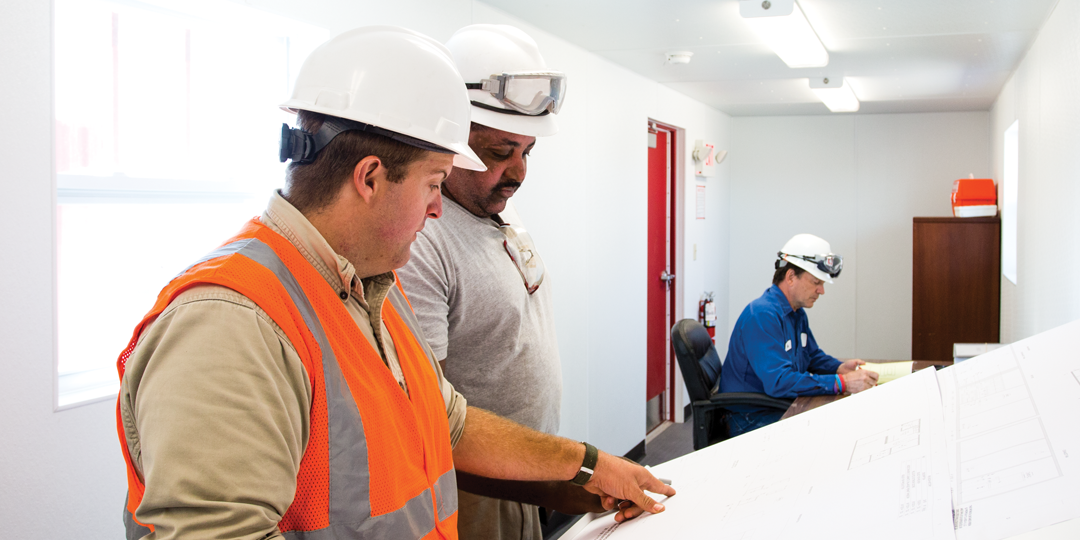
There are countless situations when you might need to rent or buy some type of structure to use as a mobile office. Mobile offices, sometimes called field offices, provide designated workspace for conducting business away from your permanent location.
Here's something worth noting: approximately 65% of companies report increased productivity with mobile office setups. Over 75% of remote workers claim better work-life balance using these spaces. Field offices can reduce operational costs by up to 30% for companies in remote areas. The mobile office market is projected to reach $27.4 billion by 2026, growing at 11.5% annually.
You have many options for modifying a mobile office and choices in structure type. The kind depends on how long you need it, location, environmental conditions, security requirements, and budget.
Definition of Mobile and Field Offices
A mobile office allows remote work from various locations. These are transportable workspaces that move between job sites as business needs change. Flexibility and adaptability built right in.
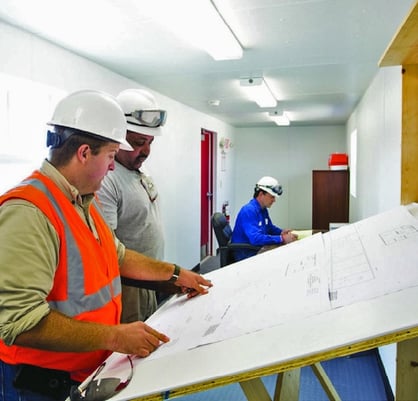
Field offices are set up at specific job sites for project management. They're common in construction, infrastructure projects, field research, oil and gas, disaster response, and industries requiring on-site presence. Both setups enhance flexibility and productivity while maintaining professional workspace standards.
Mobile offices often include technology like Wi-Fi, portable workstations, power solutions, and communication systems. The goal is creating functional office space wherever your team needs to work.
Benefits of Using a Mobile Office
Increased productivity tops the list, with 65% of companies reporting improvements. When your team works where projects happen, decision-making speeds up, oversight improves, and less time gets wasted traveling.
Cost reduction matters significantly. Field offices cut operational costs by up to 30% in remote areas by eliminating long commutes, reducing travel expenses, and maximizing billable hours.
Better work-life balance shows in the data. Over 75% of remote workers using mobile offices report improved balance. Flexibility reduces stress and increases job satisfaction.
Enhanced connectivity might sound counterintuitive, but nearly 80% of employees using mobile workspaces feel more connected to their teams than in traditional offices. Modern technology bridges physical distance effectively.
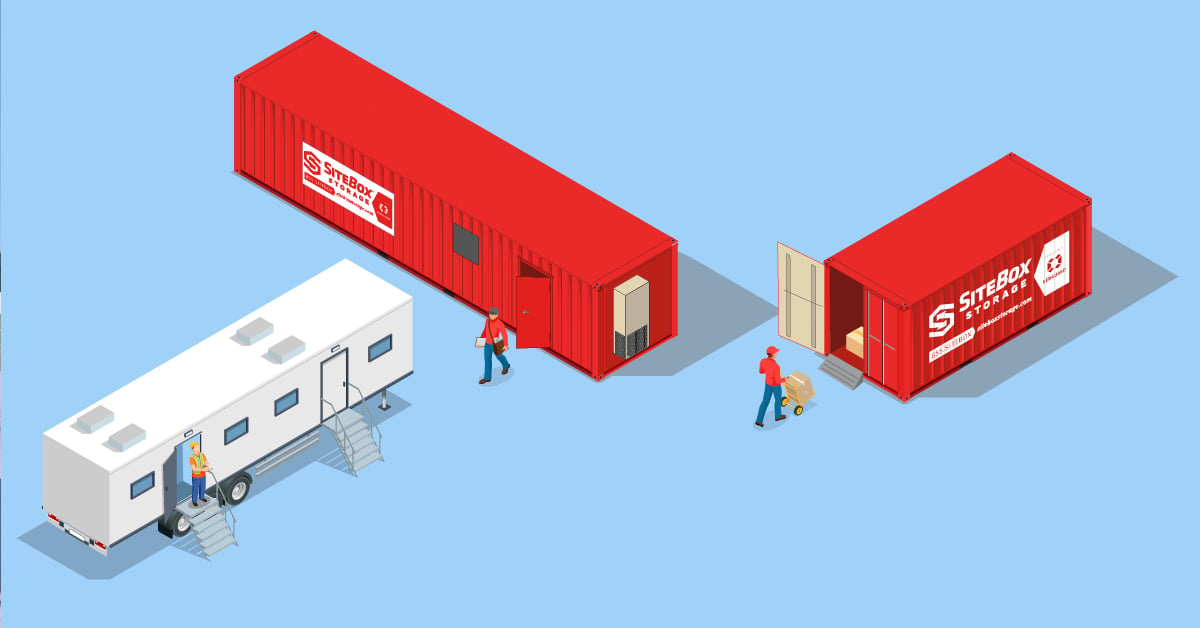
Professional workspace at job sites improves client interactions, provides secure document storage, creates proper meeting environments, and establishes credibility.
Types of Mobile Office Structures
Rental tents might seem affordable. Small 10x10 tents run around $100 daily. A 20x20 costs $200-500 per day. Standard 20x40 tents hit $750 daily. They work for single-day events but aren't practical for extended use. Weather protection is minimal, security basically nonexistent, and they offer no infrastructure for technology or climate control.
Mobile home style offices combine functionality with aesthetics. These work for extended stays where appearance matters. Most come preconfigured with office rooms and amenities. Downsides? Transportation requires special permits, movement is restricted to daytime hours, and you'll need tie-downs, skirting, stairs, and proper hookups.
Container storage units might be the most efficient choice. Monthly rental costs often equal what you'd pay daily for large tents. They provide strength, security, weather protection, and ground-level access. With modifications, they become comfortable workspaces with serious security.
Popular sizes are 8x20 and 8x40 feet. Even 8x20 containers offer plenty of space for efficient offices. The 8x40 lets you split functions—half for office space with desks, shelving, lighting, networking equipment, and half for storage or specialized areas.
Essential Equipment and Technology Solutions
Furniture basics include quality desk, comfortable chair, filing cabinets, shelving for materials. Durability matters in temporary structures.
Power infrastructure is non-negotiable. Adequate electrical outlets, proper amperage for equipment, possibly backup power depending on location.
Internet connectivity keeps operations running. WiFi solutions, mobile hotspots, or hardwired connections. Communication systems for team coordination.
Climate control maintains year-round productivity. Heating and air conditioning keep offices comfortable regardless of outside temperatures.
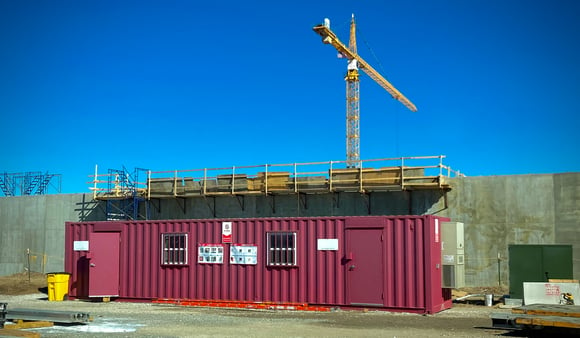
Lighting affects productivity and safety. Adequate ceiling lighting, task lighting for detailed work, exterior lighting for safe access.
Security features protect equipment and documents. Quality locks, possibly security bars on windows, alarm systems depending on location.
Organizational accessories maximize efficiency. Wall-mounted shelves, file organizers, whiteboards, storage solutions keeping everything accessible.
Designing Your Mobile Workspace
Assess actual needs before designing. How many people will work here? What activities happen? Meeting clients? Administrative work? Storage for materials?
Consider workflow when planning layout. Position workstations to support how your team operates. If people constantly reference documents, keep those within reach.
Maximize natural light where possible with window installations. This improves mood and reduces artificial lighting needs.
Create distinct zones even in smaller spaces. Office area separate from storage. Meeting space distinct from daily work areas.
Plan for accessibility from day one. Ensure doorways accommodate equipment movement, interior layout allows navigation, everything meets safety standards.
Customization and Modification Options
Container mobile offices offer extensive customization.
Interior modifications include insulated walls and finished flooring, ceiling panels, interior partitions creating separate rooms, HVAC installations, electrical systems with conveniently positioned outlets.
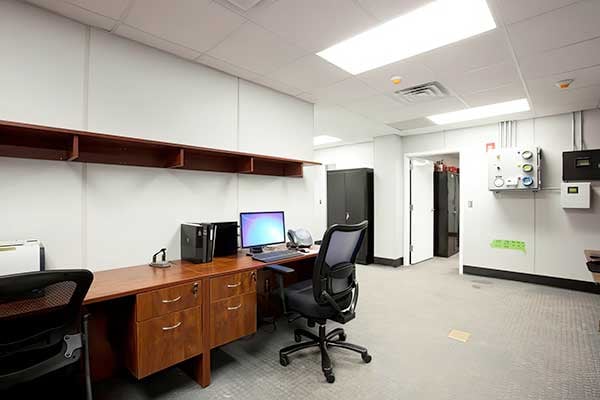
Exterior features enhance functionality. Additional doors beyond standard ends, window installations with security options, steps or ramps, exterior lighting, custom paint or graphics.
Specialized configurations adapt offices for specific industries. Half office and half storage with dividing walls, bike racks for cycling workers, indoor space for equipment like electric carts, suspended shelving and pipe racks for tools.
Technology integration includes pre-wired data ports, mounting points for screens, cable management systems, dedicated spaces for technical equipment.
The variety of modifications means you can create exactly what your operation requires.
Best Practices for Field Office Operations
Establish clear procedures for office operations. Who has access? What are hours? How do materials get checked in and out?
Maintain organization from day one. Implement filing systems, keep surfaces clear, establish where things belong.
Schedule regular maintenance for HVAC, electrical, locks, general cleanliness. Small issues become big problems if ignored.
Ensure proper security measures. Lock up when unattended, secure valuable equipment and documents.
Train your team on unique aspects of the mobile office. Emergency procedures, equipment operation, security protocols.
Plan for weather and environmental conditions. Adequate heating and cooling, weatherproofing, backup plans for extreme conditions.
Where to Find Quality Mobile Office Solutions
Finding the right setup requires researching providers with industry experience.
Look for companies offering variety in sizes, configurations, and modification options. You need flexibility to match specific requirements.
Check customer service responsiveness. Questions come up during planning, installation, and operation. You want a team that communicates clearly and solves problems quickly.
Review specifications carefully. Dimensions, materials used, warranty coverage, what's included versus additional costs, delivery and setup services.
Compare pricing across providers, but remember cheap often costs more long-term. Quality construction, proper modifications, and reliable service matter more than saving a few dollars upfront.
At SiteBox Storage, we provide mobile office solutions for construction, infrastructure projects, and various industries. Our customer service team works with you to design modifications that improve productivity and meet your requirements.
FAQ
What is a mobile office? A transportable workspace that can be set up at various locations, equipped with desks, chairs, technology, climate control, and essentials for conducting business remotely.
What is a field office? A temporary workspace established at a specific job site for project management. Common in construction, infrastructure, and field research, allowing teams to work on-site.
What are the benefits of a mobile office? Increased productivity (65% report improvements), reduced costs (up to 30% savings), better work-life balance (75% report improvements), enhanced team connectivity, and professional workspace for client meetings.
How do I set up a field office? Assess your needs, choose appropriate structure and size, arrange delivery with adequate clearance, connect utilities (power, internet), install equipment and furniture, set up technology, establish security measures.
What equipment do I need for a mobile office? Desk and chair, filing cabinets and shelving, adequate lighting, HVAC, reliable power, internet connectivity, communication systems, organizational accessories, security locks, and industry-specific tools.
How much does a mobile office cost? Costs vary based on size, modifications, and rental versus purchase. Basic container rentals start around a few hundred dollars monthly. Fully modified units cost more. Get detailed quotes for accurate pricing.
Can I customize a mobile office? Yes, extensive customization is possible with container offices. Options include interior partitions, additional doors and windows, HVAC systems, electrical configurations, specialized storage, technology integration, and industry-specific features.
What are the best practices for using a field office? Establish clear procedures, maintain organization, schedule regular maintenance, implement security measures, train team members, plan for weather conditions, and stay compliant with local regulations.
Where can I find mobile office solutions? Look for companies specializing in portable structures and container modifications. Check customer reviews, compare specifications and pricing, verify customization capabilities, and assess customer service quality.
Are mobile offices suitable for all industries? Mobile offices work for construction, infrastructure, oil and gas, field research, disaster response, event management, sales operations, and businesses requiring temporary or remote workspace. With proper modifications, they adapt to most professional requirements.
